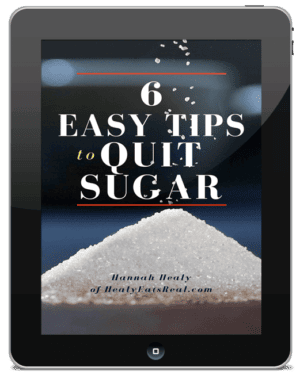6 Healthiest Cooking Oils that May Surprise You!
This post may contain affiliate links. As an Amazon Associate I earn from qualifying purchases. Please read the disclosure policy.
What are the healthiest cooking oils? You’ve probably heard a lot of back and forth about heart health, trans fats, saturated fats and smoke points when it comes to cooking oils. It can all be a bit confusing, so this article is here to clear it up and give you sound nutritional advice from the experts.
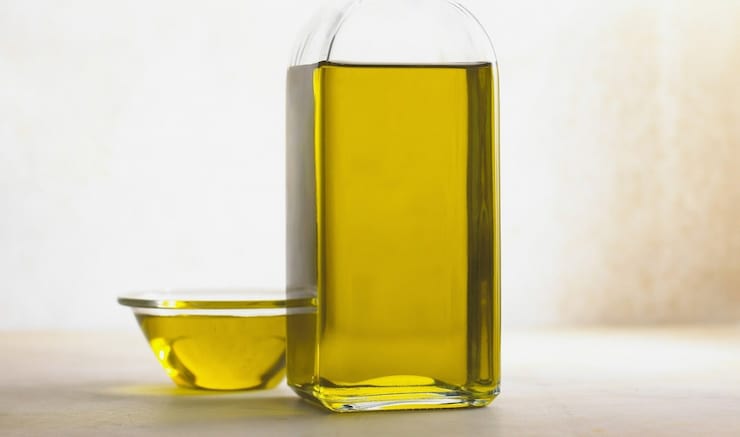
Is Saturated Fat Bad?
You may be surprised to find animal fats on a list of the healthiest cooking oils. We’ve been taught to fear saturated fats like butter for so long that it can be hard to look seriously at all the evidence that says that saturated fats are NOT something to fear.

The amount of evidence that links saturated fats and cholesterol to heart disease is slim to none. Unfortunately, the medical world is slow to come around to this compelling information and continue to prescribe unhealthy and ineffective low-fat diets and cholesterol lowering drugs to those with heart disease.
The proof for this is so overwhelming that even Time magazine published a cover article talking about how butter is actually not bad for you (something I’ve been trying to convince people of for years!).
Renowned heart surgeon Dr. Dwight Lundell has spoken out against the vilification of saturated fats:
Animal fats contain less than 20% omega-6 and are much less likely to cause inflammation than the supposedly healthy oils labelled polyunsaturated. Forget the “science” that has been drummed into your head for decades. The science that saturated fat alone causes heart disease is non-existent. The science that saturated fat raises blood cholesterol is also very weak. Since we now know that cholesterol is not the cause of heart disease, the concern about saturated fat is even more absurd today.” – Dr. Dwight Lundell, MD Cardiologist.
Saturated fats do not lead to heart disease
To put it simply, the evidence that links heart disease to saturated fat is slim to none, while the evidence linking inflammation caused by processed foods like white flour, white sugar and chemical additives is much stronger.
Dr. Lundell goes on to explain:
What you can do is choose whole foods your grandmother served and not those your mom turned to as grocery store aisles filled with manufactured foods. By eliminating inflammatory foods and adding essential nutrients from fresh unprocessed food, you will reverse years of damage in your arteries and throughout your body from consuming the typical American diet.”
This is why I am an advocate of traditional food. Traditional foods are precisely the ones that your great-grandmother served before most families’ pantries filled up with fake industrialized processed foods like margarine.
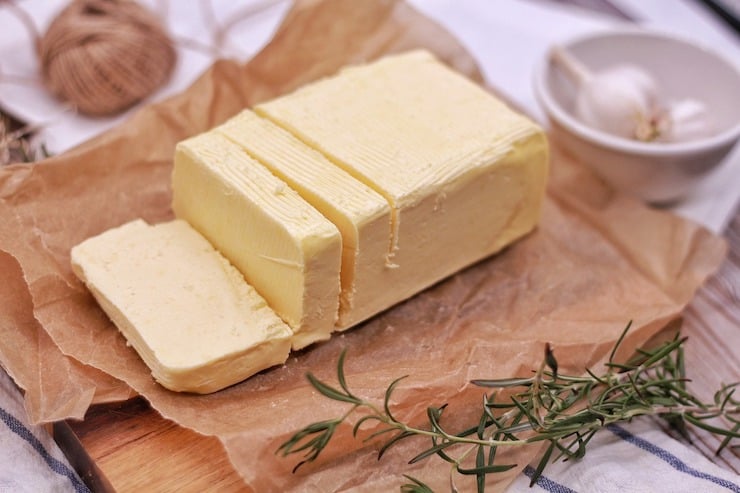
What is the meaning of smoke point in cooking oils?
The smoke point is the highest temperature that an oil can be heated before becoming oxidized. When an oil becomes oxidized it breaks down and become toxic or carcinogenic. Knowing the smoke point of each oil will help you determine whether to use it in low or high temperature cooking.
Generally speaking the more stable the fat in an oil is the less susceptible it is to oxidation. Saturated fats are very stable oils and much less likely to oxidize than seed oils and polyunsaturated fats.
1. Ghee (Clarified Butter)
Ghee has been used in traditional Indian cooking for many years. It is basically clarified butter which means that the milk solids have been removed.
Ghee is probably my favorite cooking oil. Not only does it have a wonderful rich flavor and aroma almost like popcorn butter, but it also has excellent health benefits (only if you get grassfed ghee) as well as a rather high smoke point.
Ghee is rich in the fat soluble vitamins A, D, and K2. It is also rich in CLA (conjugated linoleic acid) — the essential fatty acid found almost exclusively in grass-fed animals which is now believed to protect against cancer, heart disease, and type II diabetes.” (source)
Because the milk solids have been removed from ghee, this means that casein and lactose, which are the elements in dairy that many people are sensitive to, have been removed. Often, those with dairy sensitivities can tolerate ghee (consult a doctor if you have a severe allergy). The removal of the milk solids also allows you to use ghee at a higher temperature (up to 485°).
I use ghee for any cooking in a skillet like stir fries, scrambled eggs, sauteed veggies, etc. You can buy it online (make sure to get grass fed ghee). You can also make your own ghee from butter.
Smoke Point: 425-480° (depending on purity)
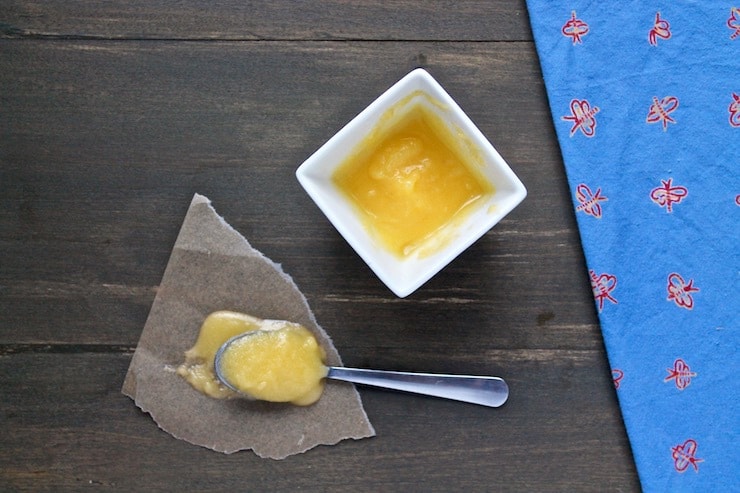
2. Coconut Oil
Not only does coconut oil have a wonderful flavor that goes great with any sweet baked good or even some savory dishes (especially thai food) it also has wonderful health benefits. Coconut oil has been said to aid in weight loss, support heart health, boost metabolism and benefit skin. It is a saturated fat, but remember saturated fat is not something to fear.
Sometimes cooking with this oil brings a coconutty flavor to the dish, but I have used it successfully in many dishes with other dominant flavors that mask the coconut flavor. You can also use refined coconut oil if you don’t want any coconut flavor.
Raw virgin coconut oil is best used in low temperature cooking or baking. Refined coconut oil has a higher smoke point and less of a coconut flavor. Refined coconut oil may have slightly fewer health benefits than virgin coconut oil, but it is still a healthy option for high heat cooking. When looking for coconut oil make sure that it is not hydrogenated or treated with hexane.
Smoke point: Virgin, raw or unrefined 280°-365°, Refined 400°-450°
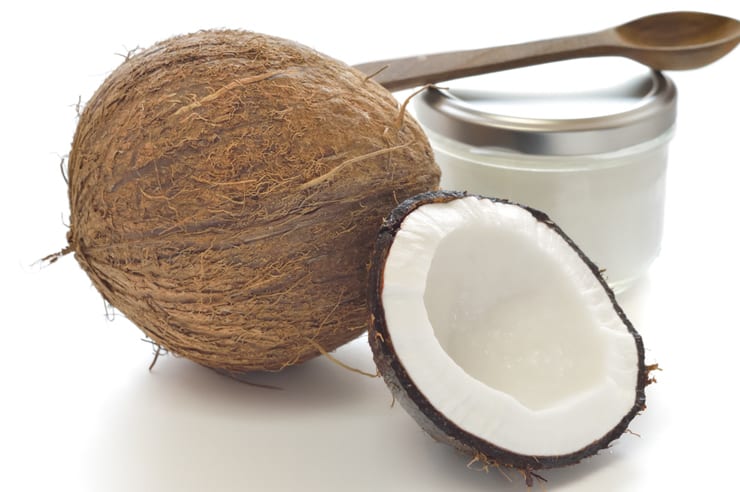
3. Olive Oil
Olive oil is a heart healthy fat that that contains beneficial antioxidants and has also been shown to have anti-inflammatory properties. It is best used for cold food (like salad dressing or drizzling over foods), but can be used in some low-heat cooking.
Unfortunately, it has been discovered that some unsavory olive oil dealers have combined olive oil with cheap vegetable oils while still labeling the bottle as 100% olive oil, so make sure the olive oil you buy is pure, otherwise you may unwittingly be consuming unhealthy oils. Read this article for more info on how make sure your olive oil is real.
Smoke point: 320°-350°
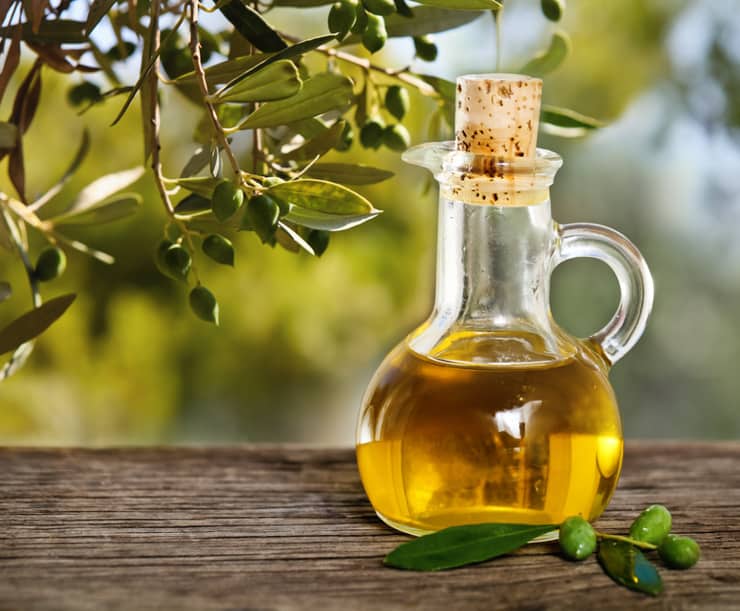
4. Avocado Oil
Avocado oil is a great light oil that stays liquid at room temperature (unlike coconut oil) and doesn’t have a very strong flavor (like olive oil). For that reason I like to use it in my 5-minute healthy mayo recipe so you can avoid using unhealthy oils like canola or soybean oil. It also has a very high smoke point.
Much of the long array of health benefits to avocados is preserved within avocado oil. Some of these benefits include vitamin E, sterolins and monounsaturated fats which are linked to healthy joints, cancer prevention, healthy eyes and better general health. Make sure you get cold-pressed avocado oil.
Smoke point: 475°-520°
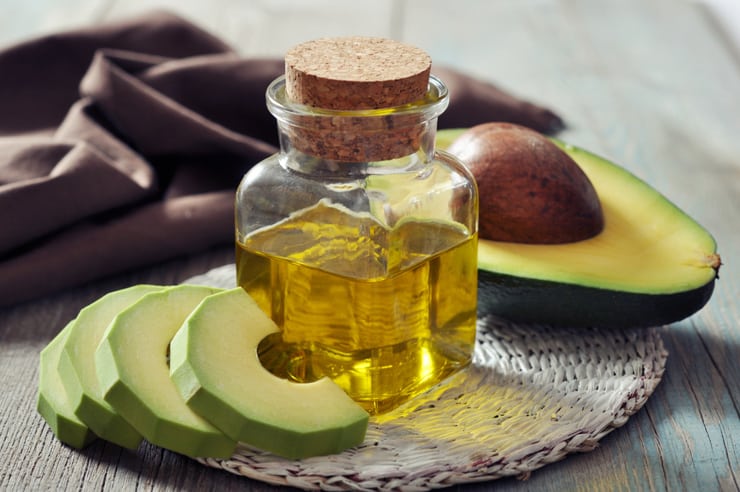
5. Palm Oil (Sustainably Sourced)
Palm oil is a great healthy option for high heat cooking. It is made from the palm fruit which is native to Africa. Palm oil is usually a deep red color and is very high in antioxidants, vitamin E and carotenoids which can be converted to Vitamin A.
There has been a lot of controversy surrounding palm oil because many palm oil plantations have contributed to the decimation of the rainforest. However, luckily you can source responsible and sustainably harvested palm oil.
There are fair trade, sustainable and orangutan-safe palm oils (meaning it has not contributed to the death of orangutans by destroying its habitat).
Smoke point: 430°-455°
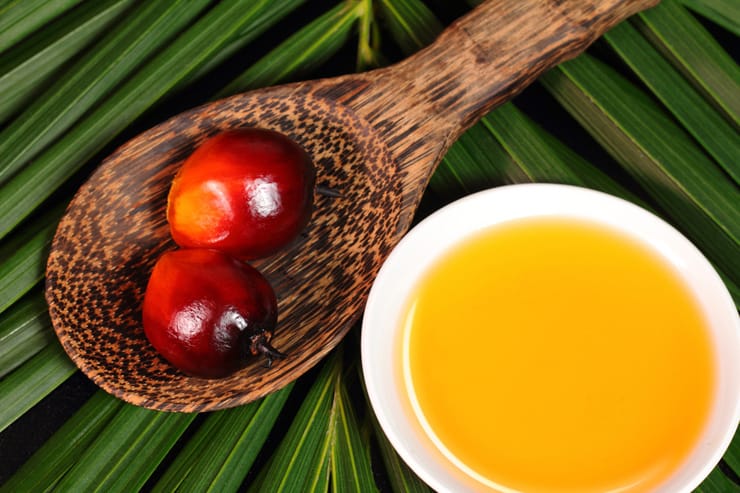
6. Butter
Contrary to popular belief, high-quality grassfed butter can be good for you! Although the mainstream media is slow to catch up… the link between saturated fats, cholesterol and poor heart health has been disproven (learn more about that here). Make sure you read the introduction at the beginning of this post to understand why saturated fat is not something to fear.
Our bodies need dietary cholesterol to function properly. So, long story short, don’t worry about pasture raised eggs or butter because your body (and brain especially) need cholesterol. Butter is full of beneficial fat-soluble vitamins, minerals, short and medium chain fatty acids and CLA. All of which help support your immune system, protect your brain and keep you healthy.
Make sure you get grass-fed butter to get the maximum health benefits. Organic raw grassfed butter is the best option (I like Organic Pastures brand). Kerrygold butter is also a solid choice that I use a lot since it is very affordable. Butter should be used in low temperature cooking since the smoke point is 325°-375°.
Smoke point: 325°-375°
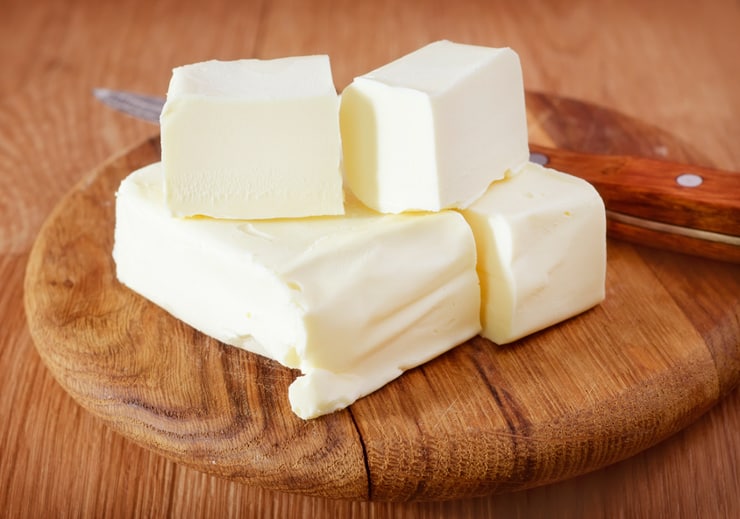
Know the worst cooking oils to avoid!
You may notice that I do not mention anything like canola oil or seed oils on this list. That is intentional!
I have been outspoken about not using canola or vegetable soybean oil since they are much worse for your health than advertised. You can read more about the worst cooking oils in my post 5 Cooking Oils You Think Are Healthy…But Aren’t.


